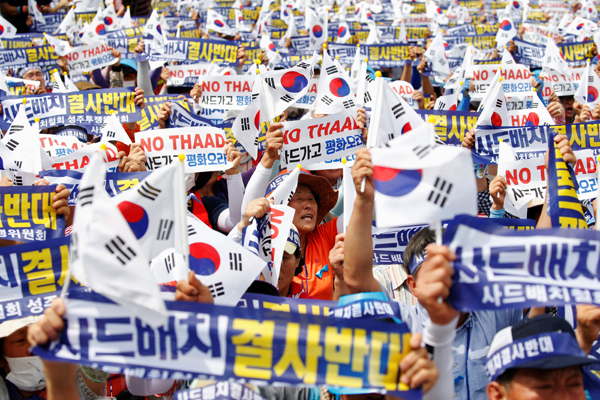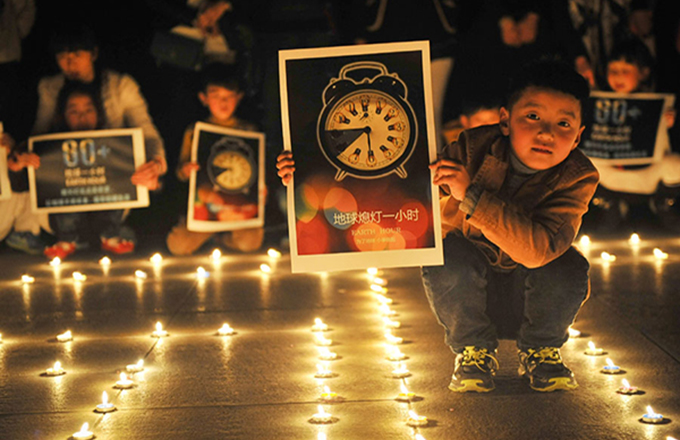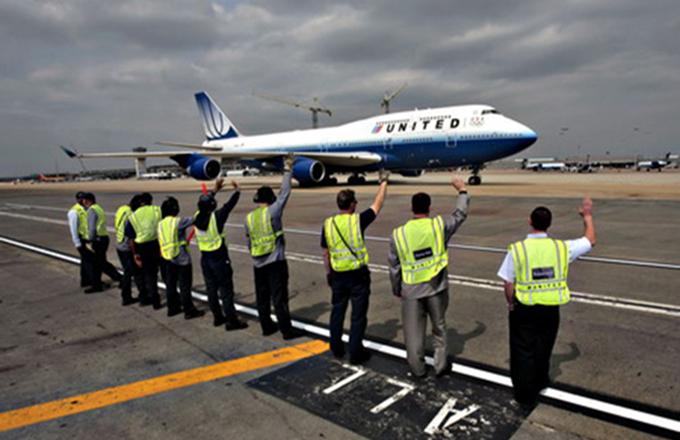THAAD only hinders efforts to denuclearize peninsula
 |
|
File photo shows Seoungju residents chant slogans during a protest against the government's decision on deploying a US THAAD anti-missile defense unit in Seongju, in Seoul, South Korea, July 21, 2016. The banner reads "Desperately oppose deploying THAAD". [Photo/Agencies] |
If, as US Pacific Command chief Harry Harris claimed, THAAD is expected to be operational "in the coming days", there is little chance of it being suspended because of protests from Beijing and Moscow, even though it comes at a time when Washington and its allies want them to commit more comprehensively and deeply to coordinated moves.
Although the official excuse has been Pyongyang's wayward stuntsmanship and the threat it poses, making THAAD a fait accompli and pre-empting any change of mind from the next administration in Seoul may be a more powerful driver behind the rush to get THAAD up and running in the ROK.
Of course, Beijing and Moscow have valid reasons to protest, because the advanced system upsets the regional strategic balance and its radar undermines Chinese and Russian security interests, even though both the US and the ROK claim otherwise.
And since the deployment of THAAD in the ROK is now seemingly done and dusted, China and Russia have no choice but to respond.
Yet, whatever form that takes, it will not be the end of the story, since the nascent coalition against Pyongyang's nuclear/missile program is likely to be collateral damage from the intransigence of Washington and Seoul.
Beijing and Moscow are in the same boat with Washington and its regional allies on denuclearizing the Korean Peninsula thanks to a shared security interest. And in the White House's latest rhetoric on Korean Peninsula denuclearization, China and Russia are referred to as "partners in the region", indicating unprecedented eagerness for a united front.
Beijing, however, has been identified as crucial to dissuading the DPRK from continuing along the path it has chosen. So much so that Washington seems to believe that Beijing alone can make a dramatic difference.
Beijing, on its part, has been consistent in adherence to diplomacy and pursuing a nuclear-free peninsula with the united efforts of all stakeholders.
The push to make THAAD operational in the ROK, however, creates a serious distraction for Beijing, because it represents a new security threat to it, one it must now address as a matter of urgency.
Washington and Seoul claim Beijing is misreading the situation and overreacting, but that is because they are not willing to take Beijing's concerns seriously and have not looked at the matter from Beijing's perspective.
Seoul does not seem to care what this means in the long run. But THAAD threatens to permanently change the regional landscape and only adds new dynamics to a situation that was already complex and requiring of careful handling.




















